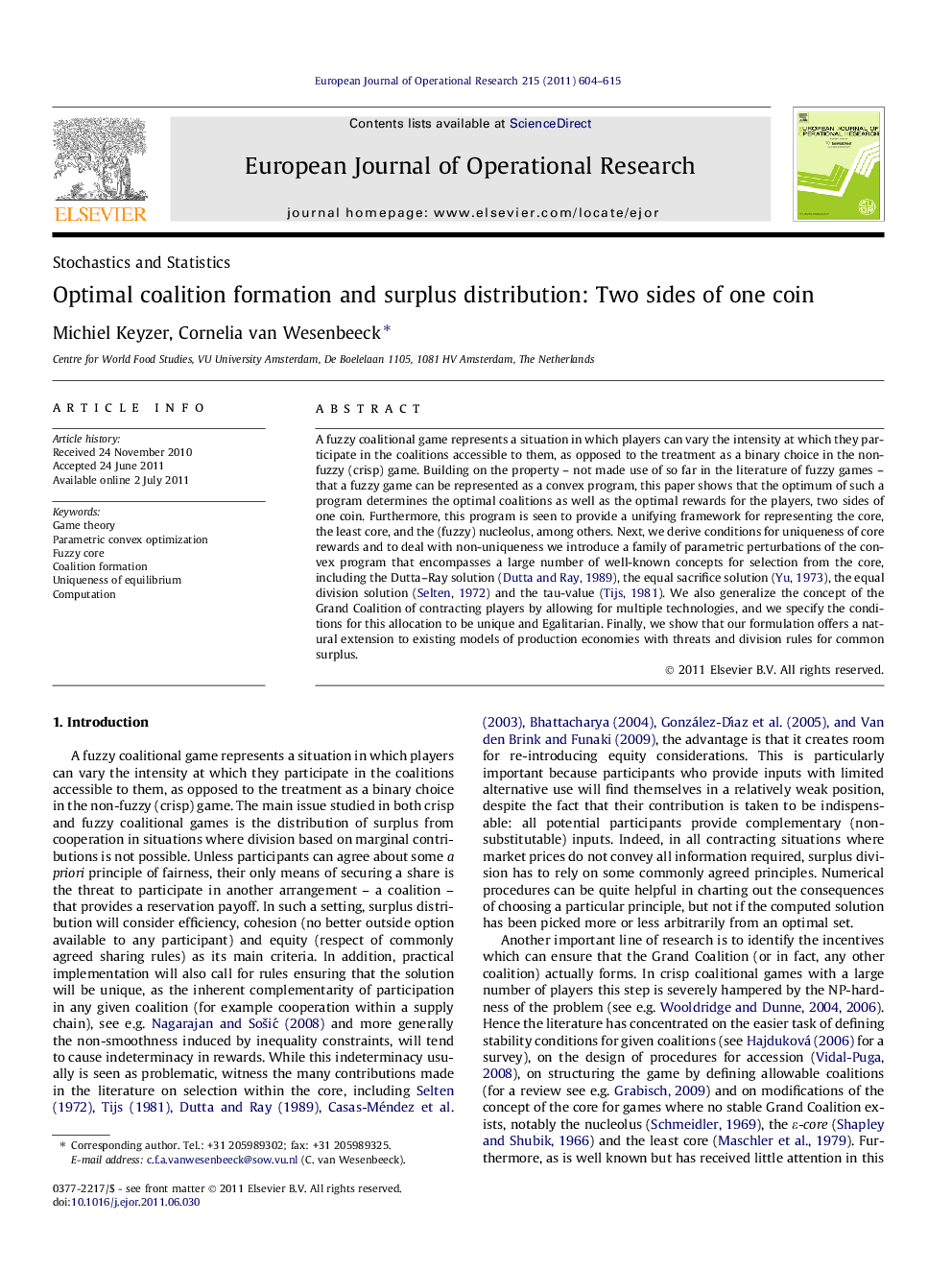| Article ID | Journal | Published Year | Pages | File Type |
|---|---|---|---|---|
| 480276 | European Journal of Operational Research | 2011 | 12 Pages |
A fuzzy coalitional game represents a situation in which players can vary the intensity at which they participate in the coalitions accessible to them, as opposed to the treatment as a binary choice in the non-fuzzy (crisp) game. Building on the property – not made use of so far in the literature of fuzzy games – that a fuzzy game can be represented as a convex program, this paper shows that the optimum of such a program determines the optimal coalitions as well as the optimal rewards for the players, two sides of one coin. Furthermore, this program is seen to provide a unifying framework for representing the core, the least core, and the (fuzzy) nucleolus, among others. Next, we derive conditions for uniqueness of core rewards and to deal with non-uniqueness we introduce a family of parametric perturbations of the convex program that encompasses a large number of well-known concepts for selection from the core, including the Dutta–Ray solution (Dutta and Ray, 1989), the equal sacrifice solution (Yu, 1973), the equal division solution (Selten, 1972) and the tau-value (Tijs, 1981). We also generalize the concept of the Grand Coalition of contracting players by allowing for multiple technologies, and we specify the conditions for this allocation to be unique and Egalitarian. Finally, we show that our formulation offers a natural extension to existing models of production economies with threats and division rules for common surplus.
► Fuzzy coalitional games can be modeled as a pair of primal–dual linear programs. ► Their optimum determines optimal coalitions and optimal rewards, respectively. ► Extensions of the primal program lead to representation of nucleolus and least core. ► Parametric perturbations of the dual program select unique allocations from the core. ► Numerical examples highlight the framework’s capacity as a computation tool.
